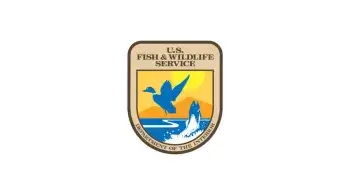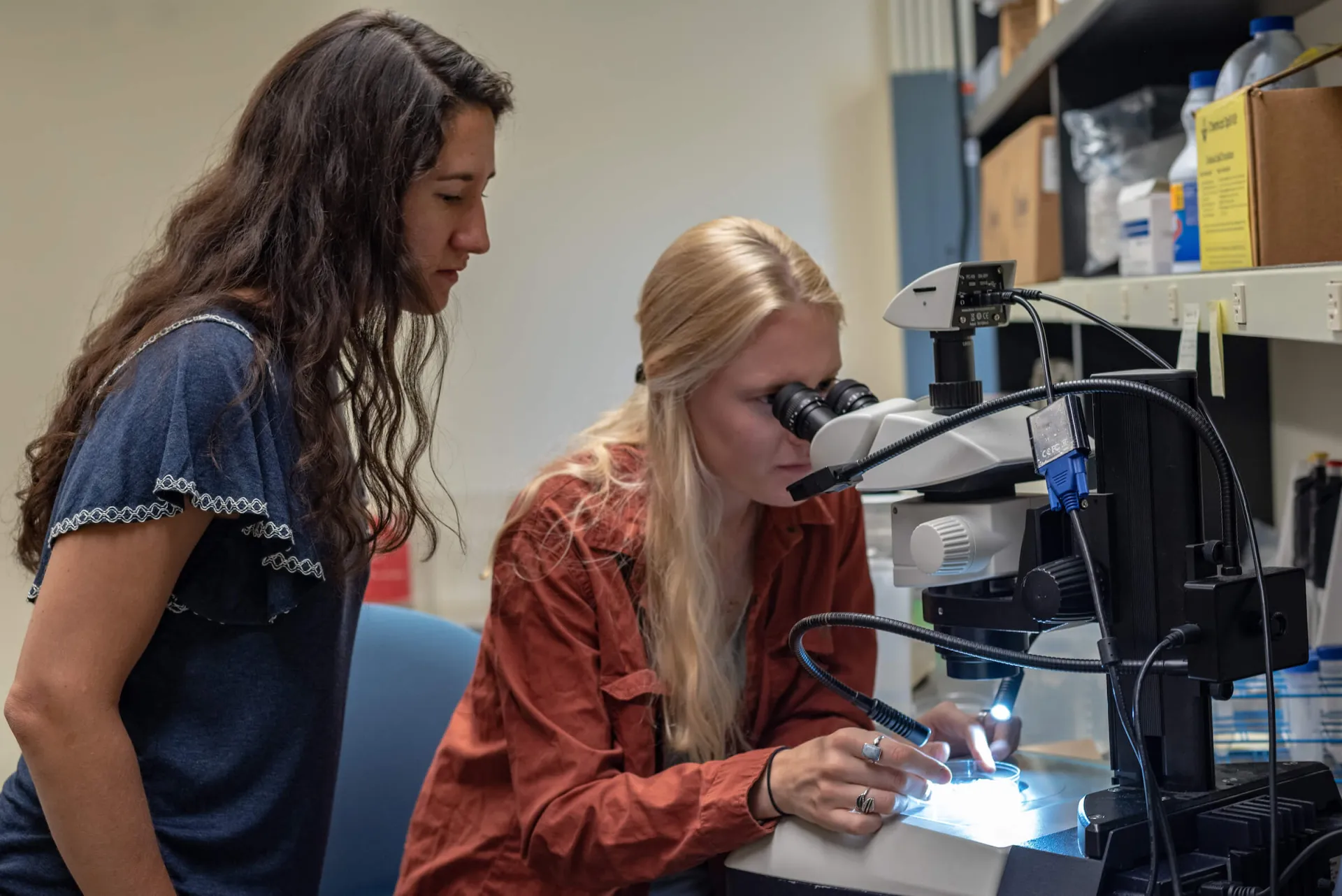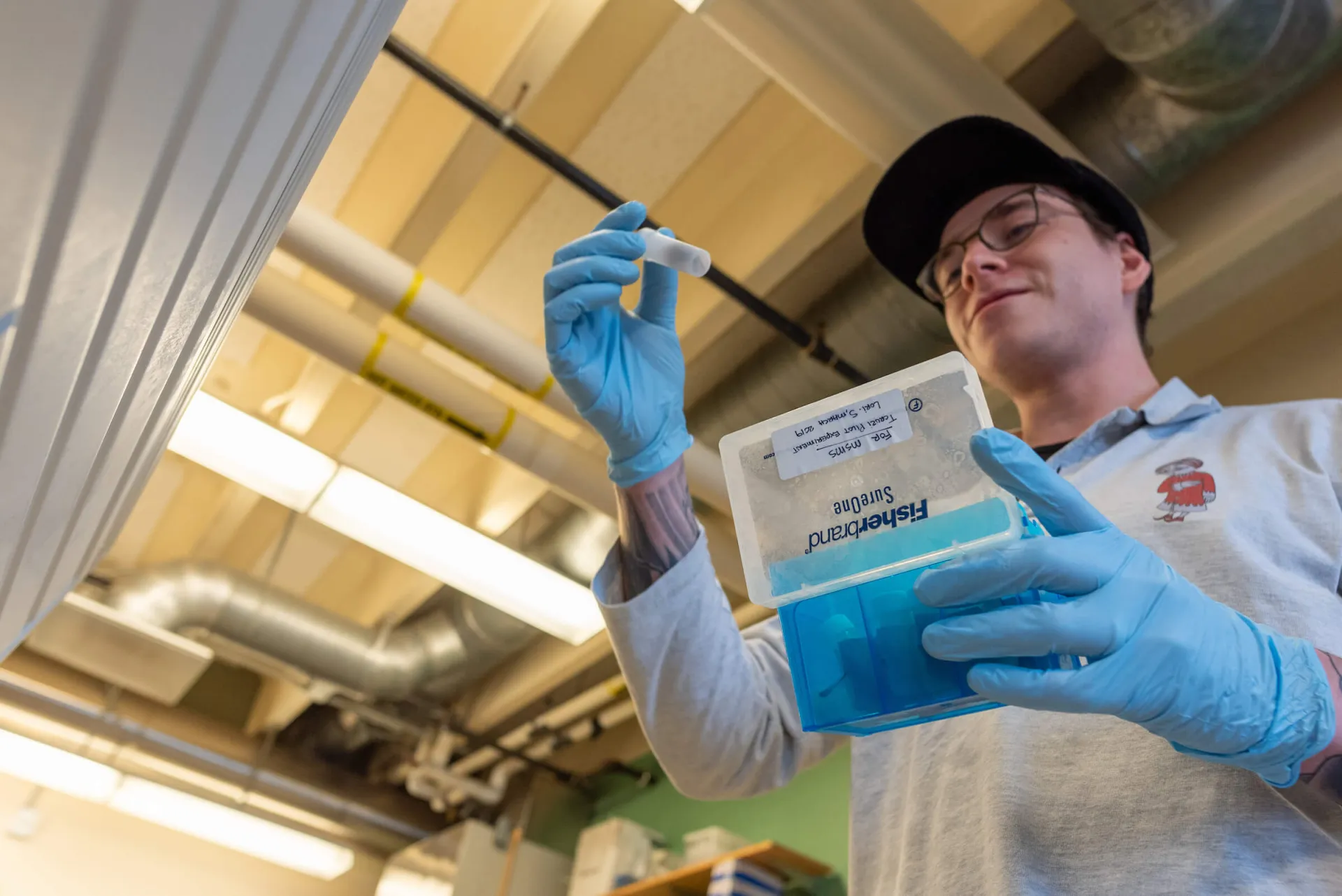You'll be prepared for anything
A liberal arts degree with a major in biology from the University of Vermont (UVM) provides you with a powerful foundation in scientific thinking while fostering a liberal arts perspective that emphasizes critical inquiry, ethical reasoning, and cross-disciplinary collaboration. As a student here, you’ll not only gain technical knowledge in life sciences but also the communication, analytical, and problem-solving skills that enable you to thrive in a wide range of careers, from medicine and biotech to environmental policy and education.
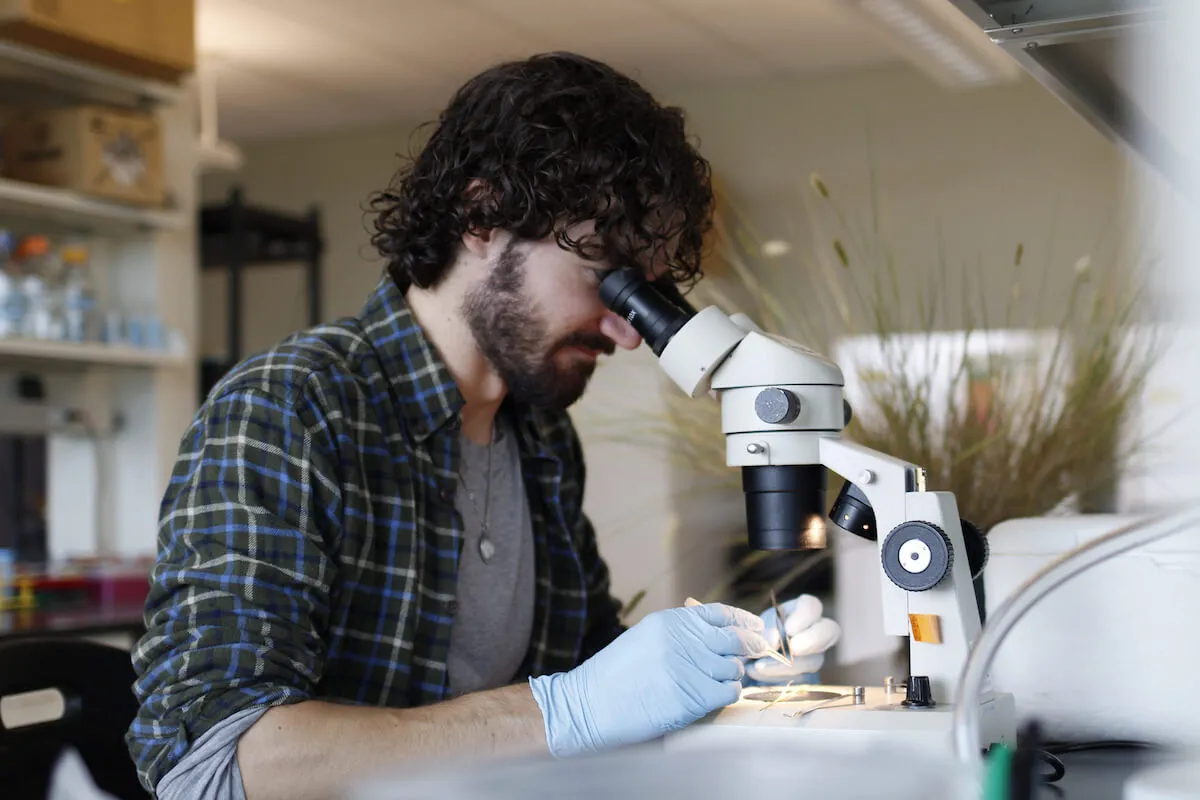
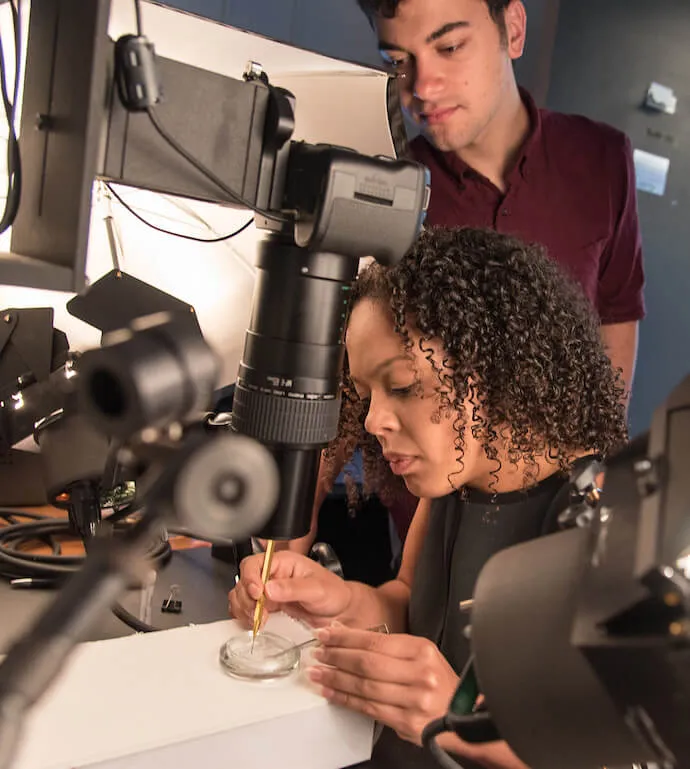
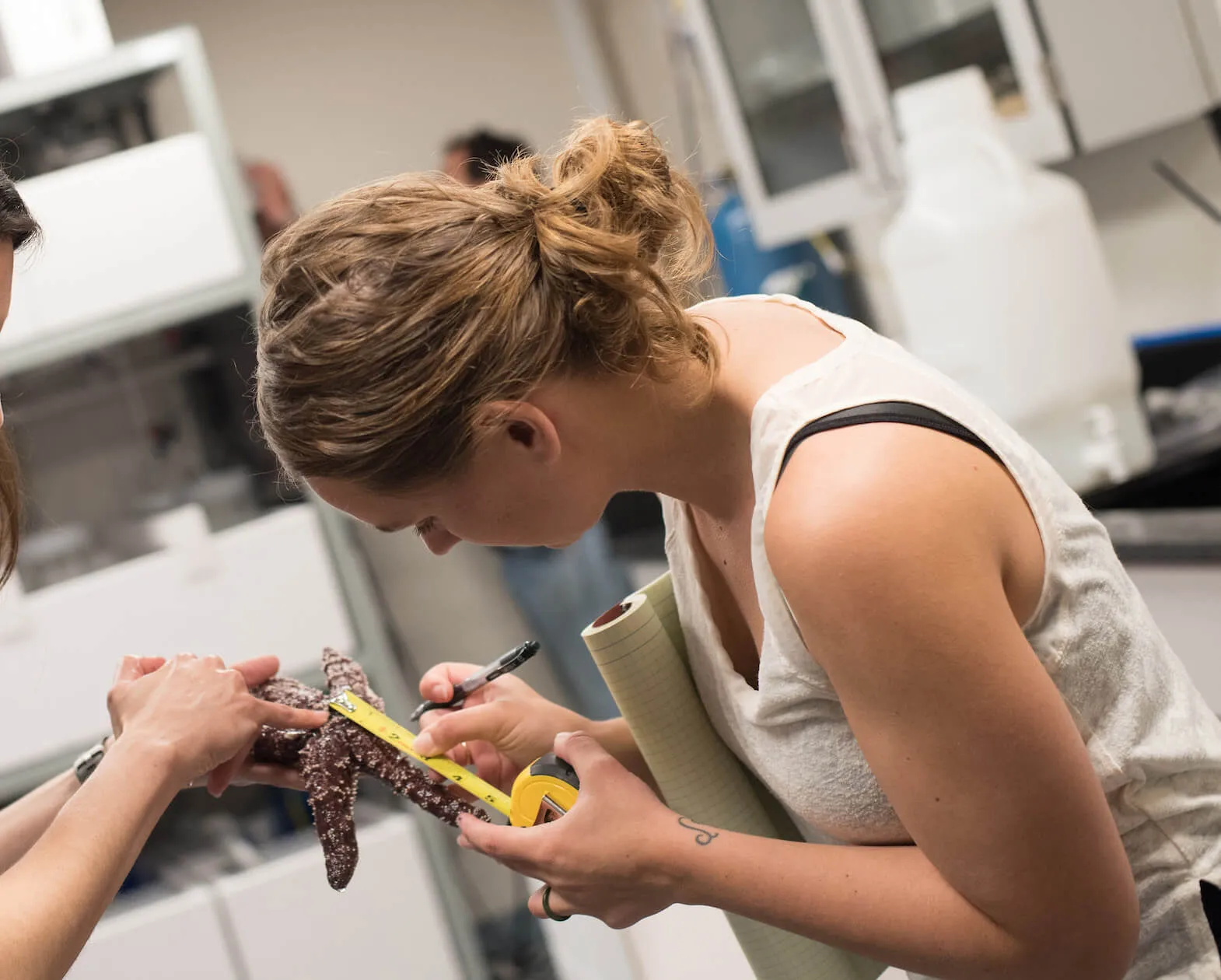
What Can You Do with a Liberal Arts Degree with a Major in Biology?
Your biology major gives you a strong foundation in scientific thinking and biological systems—skills that open doors to many careers. Those include becoming a biologist or research associate, yes, but also entering fields like environmental consulting, managing biotech products, and so much more.
A liberal arts degree with a major in biology can put you on a wide choice of rewarding career paths. Past UVM biology majors have gone on to work in fields such as:
- Biologist
- Research associate
- Physician assistant
- Medical assistant
- Environmental consultant
- Science writer
- Lab technician
- Clinical laboratory or biomedical scientist
- Biotech product manager
- Conservation scientist
- Genetic counselor
- Medical science writer
UVM Biology Students Learn the Top Skills Employers Want
Critical Thinking and Problem Solving
Students in biology learn to formulate hypotheses, design and conduct experiments, analyze data, and interpret results—often through independent research, fieldwork, and lab-based projects such as those in the Biological Science Program (BCOR) and Course-based Undergraduate Research Experience (CURE) courses.
Teamwork and Collaboration
Collaborative learning is built into our curriculum and research culture. Students routinely work in lab pairs, on group projects, and on interdisciplinary teams—including projects in the Biological Data Science Program (BilDS) and joint advising from faculty across departments.
Written and Oral Communication Skills
From writing scientific reports to delivering presentations at the Student Research Conference or the 3-Minute Thesis competition, students hone their ability to clearly communicate complex ideas to both expert and public audiences.
Professionalism and a Strong Work Ethic
Biology majors regularly participate in internships, independent research, and teaching assistantships that demand time management, reliability, and self-direction. Our graduates demonstrate strong preparation for both the workplace and graduate study.
Initiative
Many of our students engage in original research through summer fellowships, senior honors theses, and grant-funded projects. They identify novel questions, seek mentors, and apply for competitive funding, reflecting a culture of intellectual curiosity and independence.
Alumni Spotlights: How the Liberal Arts Shaped Their Careers
Where UVM Biology Majors Go to Grad School
- Harvard University
- Cornell University
- University of Washington
- University of Vermont Larner College of Medicine
- Duke University
- Tufts University
- Stanford University
- University of California, Davis
- Dartmouth College
- University of North Carolina at Chapel Hill
- University of Vermont Larner College of Medicine
Some Notable Companies that Hire UVM Biology Graduates



